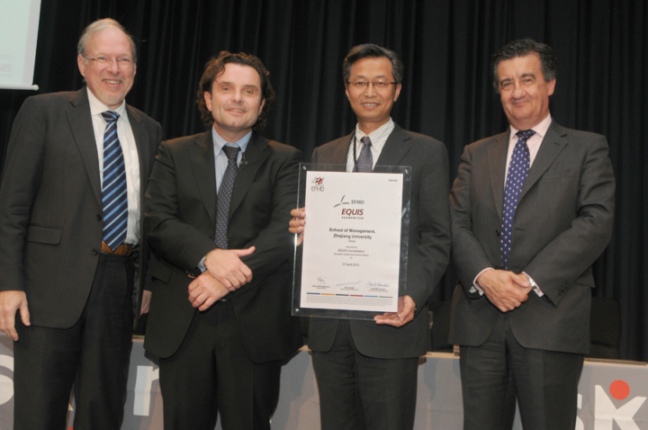On April 19, 2012, EFMD confirmed that the School of Management Zhejiang University had successfully received EQUIS accreditation. EQUIS is acknowledged as one of the most prestigious accreditation for international business schools, the other two being AACSB and AMBA.

Back in 2006, the School of Management became the first Chinese business school to receive AMBA accreditation. Financial Times reported it as "one milestone in Chinese business school’s journey to international acknowledgement." The EQUIS accreditation this year thus marks another important step in the school’s effort for continuous improvements through international standards. Meanwhile, the School was re-accredited by AMBA last year.
Currently, the School of Management is in the process of pursuing AACSB accreditation. The School regards international accreditations not only as recognitions of its achievements, but more importantly as benchmarks for continuous improvements and global excellence.
Timeline for the EQUIS accreditation:
· On November 3, 2010, the School submitted to EFMD the formal application for membership.
· On December 8, 2010, Zhejiang University was accepted as a member of EFMD.
· On March 15, 2011, the School submitted Datasheet for EQUIS Eligibility application.
· On May 4, 2011, the School hosted a briefing visit by EQUIS.
· On November 30, 2011, the School submitted the Self-Assessment Report.
· During January 10-12, 2012, the EQUIS Peer Review Team visited the School.
· On April 17, 2012, the School received EFMD’s notice confirming that the School had been awarded EQUIS Accreditation.
About EQUIS
EQUIS (European Quality Improvement System) is an international accreditation system that EFMD created to evaluate the quality of higher education institutions of management and business administration. The system’s mission is to improve the overall performance of management education worldwide. EQUIS accreditation investigates business school’s national ranking, mission, regulation structure, course scale, strategy, resources, faculty and staff, students, research capabilities, society contributions, business connections, level of internationalization, and etc, with the level of internalization and business connections as core factors.